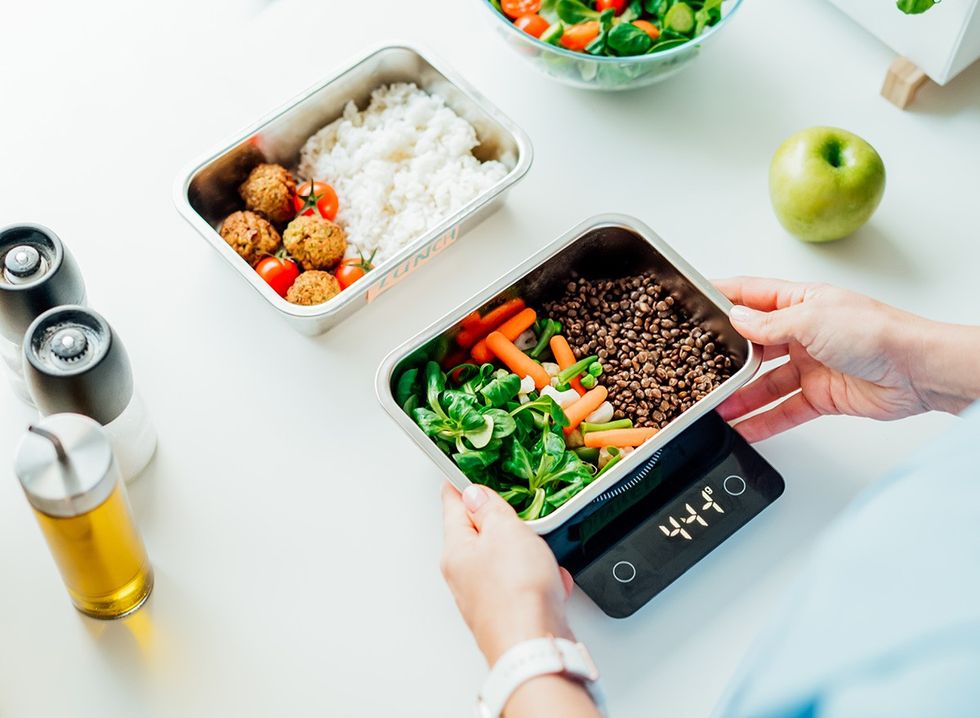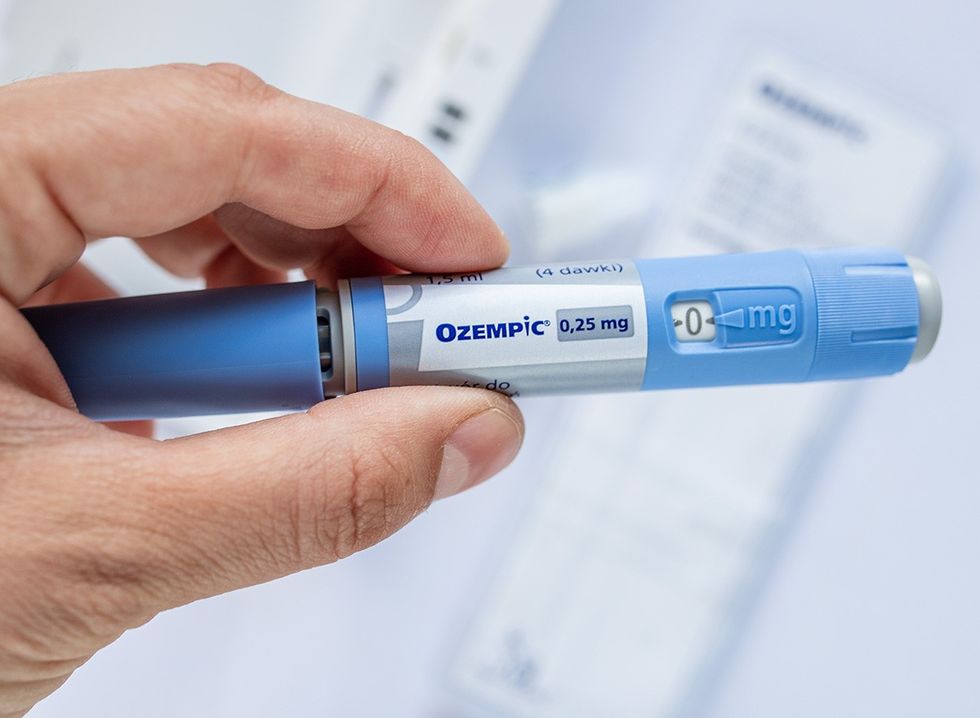Ever wondered what would happen if you ate bacon, eggs, and butter every day? Most of us have been warned about the dangers of saturated fat, but what does the science actually show? Dr. Sten Ekberg, a former Olympic decathlete turned holistic health doctor, decided to find out through a controlled experiment. His unique combination of athletic achievement and medical expertise offers valuable insights for anyone interested in understanding how different diets affect our health. Read on to discover the surprising results of his 30-day high-fat diet experiment.
Why This Doctor Took a Risk With His Health
"So I decided for 30 days I was going to do a ketogenic diet. Some people might be able to do more or less, but it's net carbs that I'm referring to, which means you take the total carbs and subtract the fiber because fiber does not contribute to blood glucose or does not trigger insulin," explains Dr. Ekberg. "Then, you also eat a moderate amount of protein. You don't want to overload your body with protein because that creates a lot of nitrogen waste, and then the rest of it will come from fat. So relative to most diets and the mainstream view of things, this is going to be a very high fat diet, but it doesn't mean more fat is better," he adds.
RELATED: Nutrition Coach Found 5 Foods That Work Better Than Ozempic for Losing Weight
What Science Says About Healthy Fats

According to UCLA Health expertsDr. Elizabeth Ko and Dr. Eve Glazier, "A robust body of research has revealed the wide-ranging benefits of including healthy fats in the diet. These include lowering the risk of developing heart disease, improving blood cholesterol levels, helping with blood sugar control and reducing inflammation."
Understanding Different Types of Fats

UCLA Health explains: "Fats are a type of lipid, which are molecules that do not dissolve in water. When someone talks about healthy fats, they're referring to lipids that, due to the specific types of chemical bonds that hold them together, remain liquid at room temperature."
RELATED: Scientist Found Walking Burns Double the Fat of Running When You Follow These 3 Rules
He Ate One Meal a Day

"When you do a low-carb diet, you're going to get even better results if you combine it with intermittent fasting. I ate one meal a day or two meals a day over 30 days; I got anywhere from 16 to 24 hours of fasting, which means for that time period, I didn't eat any food. And when you don't eat food, that allows your insulin to drop and allows your body to burn fat because you're not putting anything new in," Dr. Ekberg says. "But even more important than just losing weight, we want to understand what's happening in the body metabolically, inflammation-wise, and disease-wise. We are moving toward degenerative disease because weight is not really that clear a marker, but with blood work, we can figure this out," he adds.
Sources of Healthy Fats You Can Try

UCLA Health recommends: "Healthy fats are found in plant-based foods such as walnuts, flax seeds, chia seeds, soybeans, avocados and olives... And don't forget about fatty fish. These are an excellent source of a certain form of omega-3 fatty acid."
What a Healthy Keto Diet Actually Looks Like

While bacon and eggs were staples, Dr. Ekberg emphasizes variety: "If you go from a junk food diet with lots of sugar and processed starches and seed oils and garbage foods, then switching to bacon butter and eggs and eating nothing else would be a vast improvement. But we don't want to just do better. We want to do optimal."
A Day of Meals on the Experiment

"I ate a lot of salads... with steak or ground beef or fish or chicken. And the only dressing I had would be extra virgin olive oil and vinegar... I had a good bit of omelets... I would put sausage and bacon. I would serve it on the side with avocado."
RELATED: Trainer Swears by This 20-Minute Standing Workout to Torch Arm Fat
The Truth About Saturated Fat Consumption

"This may be the biggest hurdle that keeps people from trying a low carb or ketogenic diet," Dr. Ekberg notes. "It's not the saturated fat that's the problem. It is how is the body processing it?"
What the Blood Tests Revealed

The results challenged conventional wisdom. "My insulin had gone from 4.8 to 5.7, first time out of the optimal range, 30 days of high fat, and I was back where I need to be in the three to four range," reports Dr. Ekberg. His triglycerides and VLDL levels also improved significantly.
How to Know if This Diet is Right for You

Dr. Ekberg notes that while effective for most, this approach isn't universal: "The vast majority, probably 95% of people are going to have fairly straightforward journey that these physiological mechanisms, these principles are going to work just fine. But then there is always the exception, the other 5%."
RELATED: Nutritionist Reveals 3 Surprising Foods She Ate to Lose 15 Pounds (Including Dessert for Dinner)
Practical Tips for Including Healthy Fats

UCLA Health advises: "You can turn that around by cooking with vegetable oils, limiting saturated fats, avoiding trans fats and eating at least one good source of omega-3 fats each day." They add that even dark chocolate contains beneficial monounsaturated fats, though it should be consumed in moderation.
The Bottom Line on Fat Adaptation

Dr. Ekberg's final message is encouraging: "How adaptive your body is, that you can do serious damage in 10 days, but your body is very resilient. It will bounce back if you do the right things." And if you enjoyed this article, take advantage of these 15 Quick Ways to Lose Body Fat Percentage in a Week.














 Shutterstock
Shutterstock Shutterstock
Shutterstock Shutterstock
Shutterstock Shutterstock
Shutterstock Shutterstock
Shutterstock Shutterstock
Shutterstock Shutterstock
Shutterstock Shutterstock
Shutterstock Shutterstock
Shutterstock
 Shutterstock
Shutterstock Shutterstock
Shutterstock Shutterstock
Shutterstock Shutterstock
Shutterstock Shutterstock
Shutterstock Shutterstock
Shutterstock Shutterstock
Shutterstock Shutterstock
Shutterstock Shutterstock
Shutterstock Shutterstock
Shutterstock
 Philip Ovadia MD
Philip Ovadia MD Philip Ovadia MD
Philip Ovadia MD Shutterstock
Shutterstock Shutterstock
Shutterstock Shutterstock
Shutterstock Shutterstock
Shutterstock Philip Ovadia MD
Philip Ovadia MD Shutterstock
Shutterstock Shutterstock
Shutterstock Shutterstock
Shutterstock Shutterstock
Shutterstock Philip Ovadia MD
Philip Ovadia MD Shutterstock
Shutterstock Shutterstock
Shutterstock Shutterstock
Shutterstock Shutterstock
Shutterstock Shutterstock
Shutterstock



 I'm a Nutritionist and These 9 High-Protein Snacks Keep My Clients Full While Losing 50 Pounds
I'm a Nutritionist and These 9 High-Protein Snacks Keep My Clients Full While Losing 50 Pounds
 Shutterstock
Shutterstock 2. Processed FoodsShutterstock
2. Processed FoodsShutterstock Shutterstock
Shutterstock Shutterstock/Prostock-studio
Shutterstock/Prostock-studio Shutterstock
Shutterstock Pro TipsShutterstock
Pro TipsShutterstock Shutterstock
Shutterstock Shutterstock
Shutterstock Shutterstock
Shutterstock Shutterstock
Shutterstock Don’t Drink as Much AlcoholShutterstock
Don’t Drink as Much AlcoholShutterstock Most Women on GLP-1s Are Making a Few Common MistakesShutterstock
Most Women on GLP-1s Are Making a Few Common MistakesShutterstock Soda and Sugary DrinksShutterstock
Soda and Sugary DrinksShutterstock Shutterstock
Shutterstock Eat BreakfastShutterstock
Eat BreakfastShutterstock And Improve Insulin SensitivityShutterstock
And Improve Insulin SensitivityShutterstock Belly Flab Strip Tip: Sugar and Fat Calories Leave Its Mark on Your BodyShutterstock
Belly Flab Strip Tip: Sugar and Fat Calories Leave Its Mark on Your BodyShutterstock Shutterstock
Shutterstock The Drugs Mimic the GLP-1 Hormone Naturally Produced by the BodyShutterstock
The Drugs Mimic the GLP-1 Hormone Naturally Produced by the BodyShutterstock 3. Deep-Fried ItemsShutterstock
3. Deep-Fried ItemsShutterstock